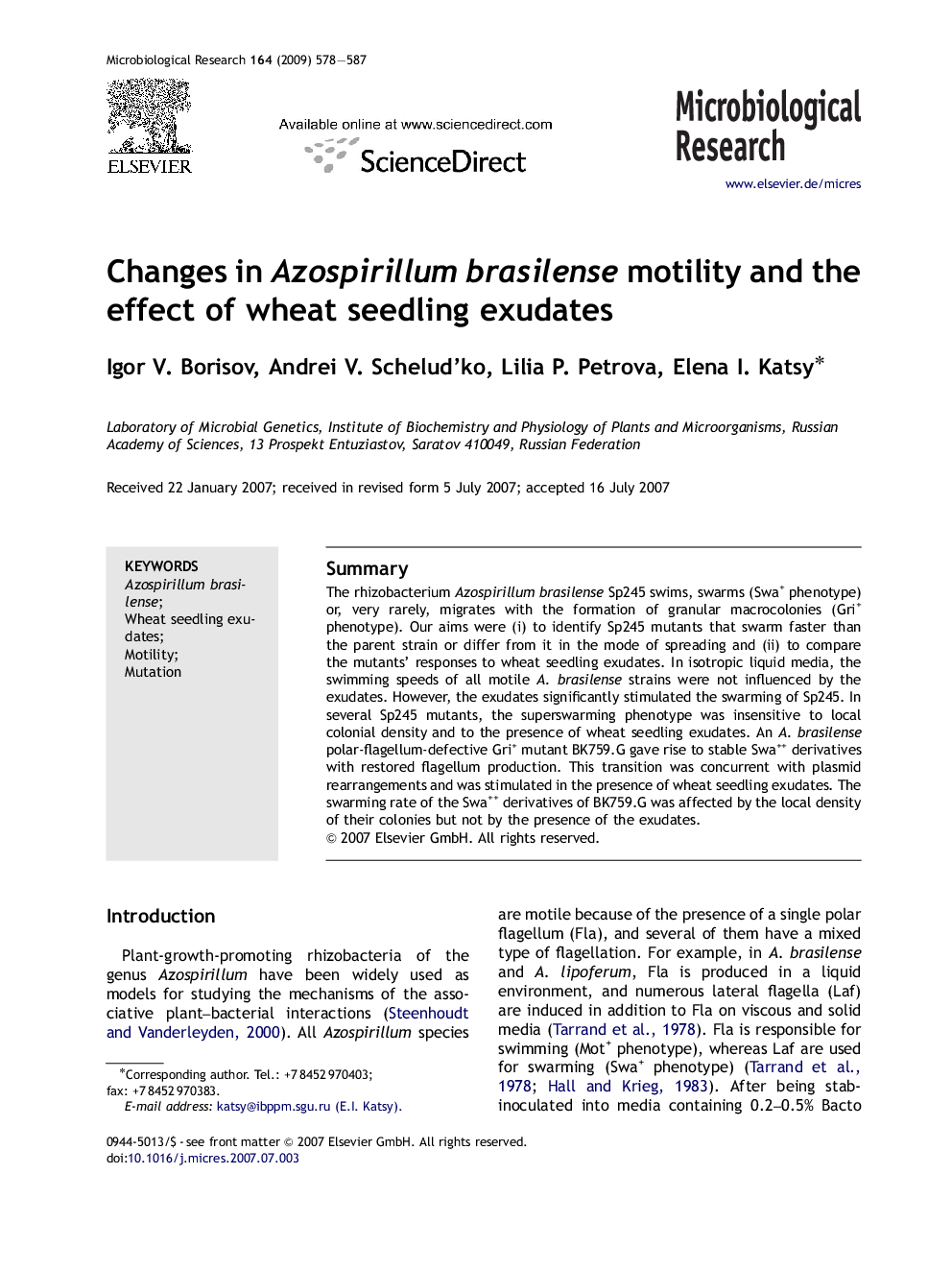| Article ID | Journal | Published Year | Pages | File Type |
|---|---|---|---|---|
| 2092610 | Microbiological Research | 2009 | 10 Pages |
SummaryThe rhizobacterium Azospirillum brasilense Sp245 swims, swarms (Swa+ phenotype) or, very rarely, migrates with the formation of granular macrocolonies (Gri+ phenotype). Our aims were (i) to identify Sp245 mutants that swarm faster than the parent strain or differ from it in the mode of spreading and (ii) to compare the mutants’ responses to wheat seedling exudates. In isotropic liquid media, the swimming speeds of all motile A. brasilense strains were not influenced by the exudates. However, the exudates significantly stimulated the swarming of Sp245. In several Sp245 mutants, the superswarming phenotype was insensitive to local colonial density and to the presence of wheat seedling exudates. An A. brasilense polar-flagellum-defective Gri+ mutant BK759.G gave rise to stable Swa++ derivatives with restored flagellum production. This transition was concurrent with plasmid rearrangements and was stimulated in the presence of wheat seedling exudates. The swarming rate of the Swa++ derivatives of BK759.G was affected by the local density of their colonies but not by the presence of the exudates.
